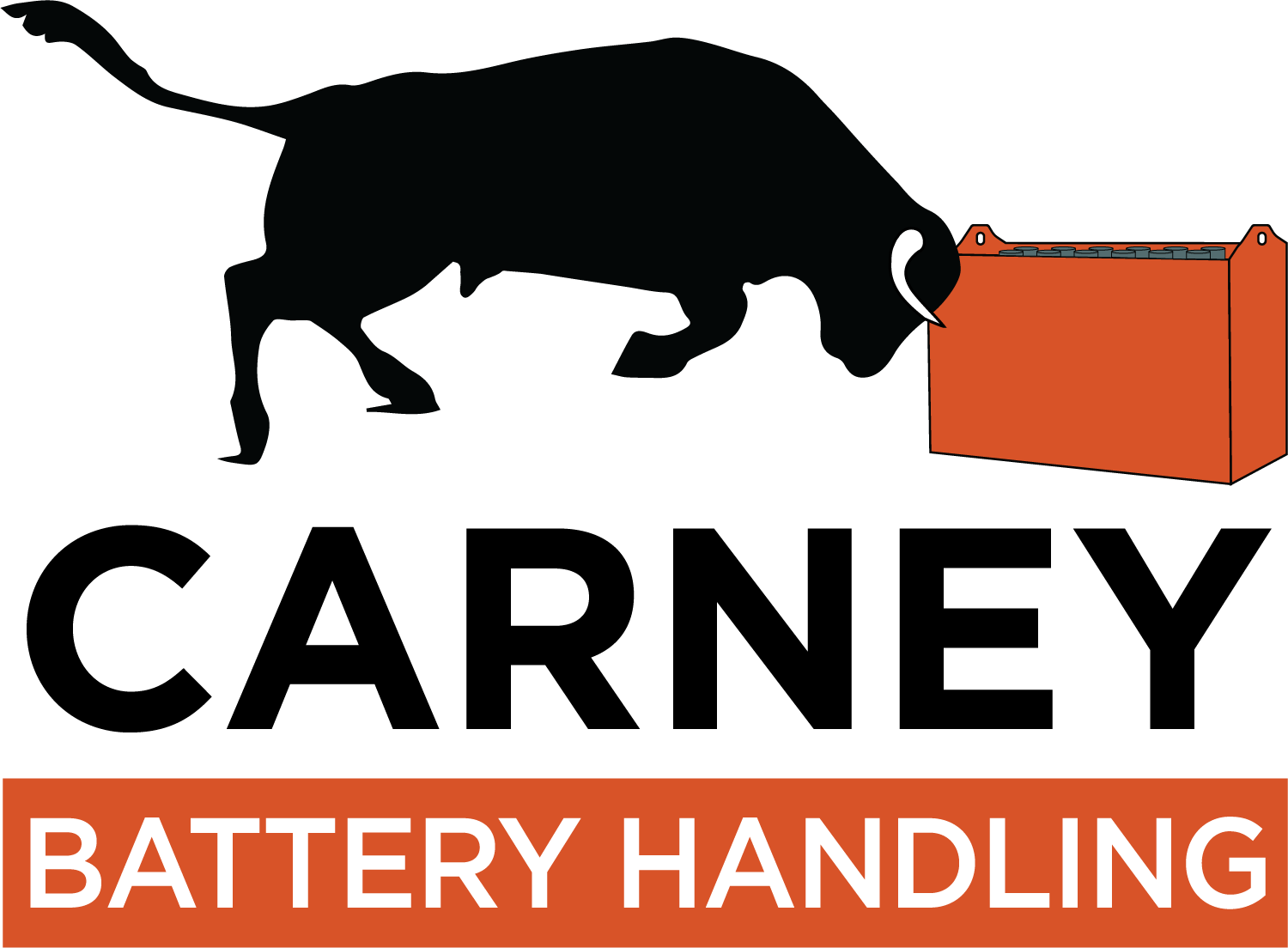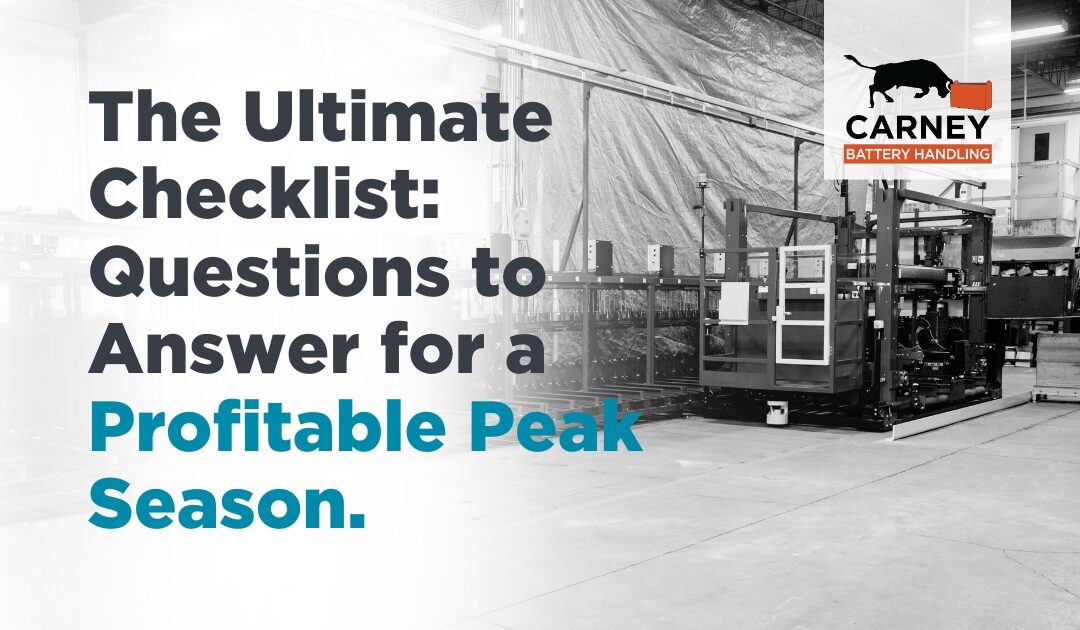Managing your equipment’s batteries is crucial to preparing for the peak season. This busy and demanding time may require additional work hours and shifts, which can push your workforce to the limit. Hiring more staff is one way to meet the demand, but it’s also important to consider the impact of the extra workload on your material handling equipment. By properly managing and maintaining your equipment, you can ensure that your team is equipped to rise to the challenge and deliver exceptional results.
10 Questions to Answer for a Profitable Peak Season
1. Is your existing fleet of material handling equipment in peak condition? Check your forklifts, reach trucks, pallet trucks and order pickers. Do they need maintenance/servicing?
Forklifts should be inspected at the beginning of each shift. Here is a list of daily inspection recommendations from CCOHS to get you started: CCOHS Forklift Checklist
2. If electrically powered, are your equipment batteries in good working order with a lasting charge?
Forklift batteries should be fully charged before use. Check battery plug connections, vent caps, electrolyte levels, hold-downs, and brackets.
3. Are all your battery chargers working correctly? If you do not regularly,
- Follow recommended charging practices for your battery technology.
- Make sure chargers are off when connecting or disconnecting to a battery.
- Keep battery tops clean & dry.
- Store charging cables properly with pogo sticks or wall-mounted brackets.
- Keep chargers elevated off the ground and well-ventilated to prevent the battery from overheating.
- They probably aren’t.
4. If you are going to run extended shifts or extra shifts, do you need spare batteries to enable your MHE to work longer hours? Some battery companies and forklift dealers offer short-term rentals of batteries,
5. Consider short-term rental of additional MHE to meet the increased demand. Below are a few considerations that may tip the scale.
Consider usage: Rentals are a great short-term solution however, if you need something long-term, purchase or contract hire/long-term rental are good options.
- Type of Project: What purpose does the MHE serve? Do you need additional equipment for the entire fleet or just peak times in each shift?
- Budget: Used forklifts are typically cheaper however, renting is budget friendly. Remember the initial cost is only the first step maintenance and storage should also be factored into the budget.
- If you are considering a rental, ask if the rentals come with spare batteries.
6. The average Electric Forklift needs 15,000 kwh per year. Do you have enough power to support more equipment?
Not sure? Try using this battery area evaluation form to find out.
7. If you need spare batteries, how will they be serviced? If you choose to rent equipment, the rental company may include maintenance but if not, do you have the staff to ensure the equipment is taken care of? How can one ensure that rented equipment is properly maintained if the rental company does not include maintenance services?
8. Where will you store the extra batteries for charging?
9. How early before peak season should a plan for managing battery fleets be implemented?
10. Do you have the space for a fleet expansion? Can you rearrange your existing battery room to accommodate new equipment?
During peak retail seasons like back-to-school, holiday season or summer inventory clearance, the demand for loading, storing, and shipping goods is incredibly high. As a result, operations everywhere have a hard time keeping material handling efficient due to the heavy increase in demand. Obtaining the equipment you need becomes a price war between, budget expectations and returns (ROIs). Ease the burden of peak season for operators and create a positive snowball effect starting with your material handling equipment (MHE).
MHE that can improve the flow of your battery room:
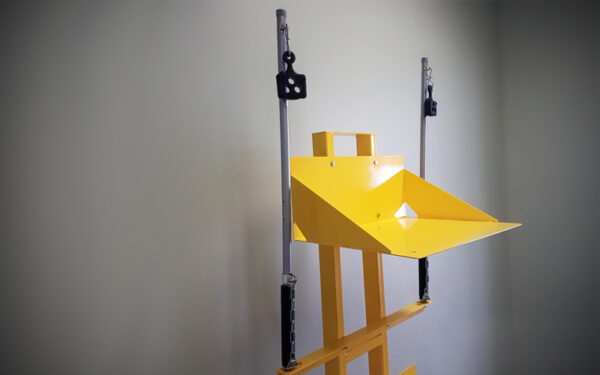
Park & Charge Stands
Carney Battery Handling offers a wide range of park and charge stands to suit multiple charger configurations suited to various facility layouts. Our opportunity charging stations and floor mount charger shelves can be completely customized for various widths, heights and shelves and shelf configurations.
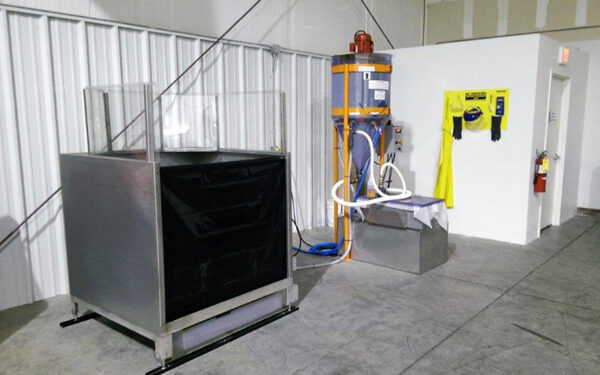
Battery Wash Station
For small fleets with infrequent washing needs, CBH’s semi-automatic wash station provides an efficient and cost-effective to keep your batteries operating at their peak. The BWS allows for both roll-out and lift-out systems with a full range of matched consumables and can be integrated with our Wastewater Treatment System (WWTS).
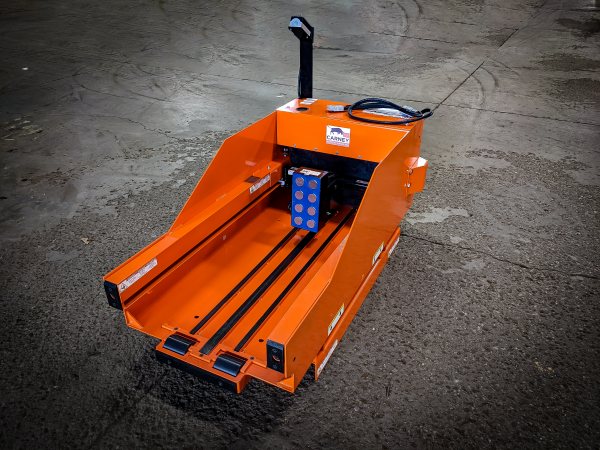
Battery Tugger Electric
The BTE series is fitted with our reliable 1,800 lbs electromagnetic extraction system that is used extensively on our man-aboard systems. The unit also uses a lead roller to ensure smooth and damage-free exchanges each time and offers optional battery guides to prevent smaller pallet truck batteries from tipping over.
References:
CCOHS “Forklift Trucks, Daily Checks” CCOHS.ca Revised 13 June. 2023. Web. 01 Sept, 2023.
Faust, Brian. “Proper Care, Safety and Maintenance of Forklift Batteries.” MHLNews. Penton, 21 Nov. 2014. Web. 13 Dec. 2016.
Equipment, Johnston. “Battery Maintenance” johnstonequipment.com 2018. Web. 01 Sept 2023.
